Steel Service Centers
Steel service centers play a crucial role in the steel industry, serving as a key link in the production and distribution of steel products. These centers typically purchase metal from a metal foundry or another metal manufacturing plant, then process, shape, and tool the metal into forms suitable for end users before reselling it to a range of industries.
Steel Service Centers FAQs
What does a steel service center do?
A steel service center purchases raw metal from foundries, then processes, shapes, and tools it into usable forms before reselling to manufacturers. These centers handle early-stage processing, reducing the need for in-house equipment and storage at client facilities.
What industries use steel service centers?
Steel service centers support industries such as construction, automotive manufacturing, shipbuilding, aerospace, and electronics. They supply processed metals like carbon, stainless, and alloy steels to meet specific structural and production needs nationwide.
What are the benefits of using a steel service center?
Partnering with a steel service center saves time and space by eliminating in-house steel processing and inventory storage. Clients gain access to expert metalworking, large inventories, and faster delivery, optimizing production efficiency and cost control.
What processes are performed at steel service centers?
Steel service centers perform metal forming and finishing processes such as hot rolling, cold rolling, galvanizing, coating, anodizing, quenching, and alloying. These methods enhance strength, appearance, and corrosion resistance for diverse manufacturing uses.
What materials are commonly processed in steel service centers?
Common materials include carbon steel, stainless steel, alloy steel, spring steel, structural steel, tool steel, and aluminized steel. Each type is selected for its unique balance of strength, ductility, and corrosion resistance suited to industrial needs.
How does hot rolling differ from cold rolling in steel processing?
Hot rolling forms steel at high temperatures, making it easier to shape but less smooth. Cold rolling is done near room temperature for higher strength and surface finish, ideal for products needing precision and structural integrity.
What standards govern steel service center products?
Steel products processed through service centers must comply with ASTM standards for quality and performance. The Metals Service Center Institute (MSCI) also represents North American members ensuring consistent materials, safety, and processing standards.
Quick links to Steel Service Centers Information
History of Steel Service Centers
Steel service centers have operated in the United States since the colonial era, when they were known as ironmongers. Colonial ironmongers produced and sold iron products for everyday use. The term ironmonger is still used in Great Britain as a synonym for hardware store. Historically, about 10% of steel products were distributed through service centers. Today, around 30% of industrial steel and 45% of specialty steel are processed through steel service centers.
Steel Service Centers Benefits
Steel service centers deliver a range of advantages for their clients. They handle early-stage steel processing and eliminate the need for businesses to invest in space and equipment for metal shaping and processing. By partnering with a steel service center, companies conserve valuable floor space and benefit from expert customer support. With large inventories on hand, steel service centers ensure manufacturers receive materials quickly and efficiently, reducing the need for in-house steel storage and saving both time and costs.
About 70% of steel purchased by service centers undergoes some form of pre-production processing. This arrangement lets metal manufacturing plants focus on producing raw materials, while other facilities can dedicate their resources to product fabrication.
Design of Steel Service Centers
When designing steel products or shapes for clients, steel service centers evaluate all aspects of the customer’s application. These include the required level of finishing, desired steel properties such as strength, flexibility, hardness, and ductility, as well as order volume, budget considerations, and any specific standards the customer must meet.
Applications of Steel Service Centers
Steel service centers exist to assist and supply metal manufacturing businesses. They source various alloys of raw steel, such as carbon steel, and process them to meet the precise requirements of their clients.
Industries that depend on steel service centers include construction, automotive manufacturing, electronics, shipbuilding, and aerospace.
Steel Service Centers Process
Steel service centers follow a standard set of steps for processing steel:
They purchase steel from foundries or wholesalers.
Next, the steel is formed or shaped into the required configuration.
When necessary, finishing processes are applied to the product.
Once finished, the steel is either packaged and shipped to the customer or stored until it is needed.
The specific metalworking methods used by service centers depend on the intended product. Most processes fall into two primary categories: metal forming and metal finishing.
During the forming stage, service centers alter the shape or size of metal using techniques such as metal injection molding, metal casting, metal extrusion, spinning, stamping, continuous rolling, and others. The two core forming techniques used are hot rolling and cold rolling.
- Hot Rolling
- Hot rolling is the primary method for shaping steel, where the steel is heated above its recrystallization temperature, approximately 1650°F, and passed through rollers. The elevated temperature makes the steel pliable and easier to form, but as it cools, surface oxidation can occur, resulting in a blue-grey finish and reduced smoothness.
- Cold Rolling
- For applications requiring high strength and structural integrity, steel service centers use cold rolling, a process performed at or near room temperature. Because no heat is involved, the risk of surface oxidation is eliminated. However, the range of shapes is limited since the steel is not softened by heat.
- Metal Finishing
- Metal finishing involves altering the surface properties of metal. Techniques include galvanization, coating, aluminization, oil quenching, air hardening, tempering, heat treating, anodization, and alloying.
- Galvanization
- Galvanization coats steel articles with zinc layers to enhance strength and corrosion resistance. This is essential for applications where steel parts face harsh or corrosive environments, whether industrial, commercial, or residential.
- Coating
- Coating processes apply a thin protective or decorative layer to a substrate. The main purposes are to protect the material from environmental factors, corrosion, and abrasion, or to enhance its appearance with characteristics such as color, texture, or scent.
- Aluminization
- Aluminization is a cost-effective process where cold-rolled carbon steel is hot-dipped in a molten aluminum-silicon alloy, coating both sides of the sheet. Aluminized steel benefits from steel’s low cost and light weight, along with aluminum’s rust resistance, conductivity, and smooth surface.
- Quenching
- Quenching rapidly cools steel in cold water or oil to harden it. High-strength low-alloy (HSLA) steels often contain elements like copper, silicon, nickel, chromium, and phosphorus for enhanced corrosion resistance.
- Anodization
- Anodization increases a metal’s surface hardness, wear resistance, and corrosion resistance by forming an oxide layer through an electrolytic process.
- Alloying
- Alloying involves adding other elements to steel to modify its properties. For example, small amounts of columbium, copper, vanadium, or titanium can increase strength. Adding more alloying elements generally raises production costs.
Materials Used in Steel Service Centers
Steel service centers provide a variety of steel materials to meet different manufacturing needs, including:
- Alloy Steel
- Alloy steel contains elements like chromium and manganese in addition to carbon. These steels deliver greater tensile strength, improved corrosion and oxidation resistance, and more ductility compared to standard carbon steels.
- Aluminum Steel
- This is steel sheet coated with an aluminum alloy for enhanced properties.
- Aluminized Steel
- Aluminized steel is created by hot-dip-coating steel in an aluminum-silicon alloy, combining the strength and lightness of steel with the rust resistance and smooth finish of aluminum.
- Carbon Steel
- Carbon steel is an iron alloy where carbon is the second largest component. The amount of carbon determines the steel’s hardness and strength.
- Cold Rolled Steel
- Cold rolled steel is formed without heat, resulting in a smooth surface and is commonly used in light-duty products and furniture that do not require high-strength structural steel.
- High-Strength Steel
- High-Strength Low Alloy (HSLA) steel refers to steel types other than mild low-carbon steel. HSLA is alloyed with metals such as copper, silicon, nickel, chromium, and phosphorus for better corrosion resistance, and elements like columbium, copper, vanadium, and titanium for added strength. More alloying increases costs but improves structural qualities, carbon content, and reduces weight.
- Hot Rolled Steel
- Hot rolled steel is made by heating large steel pieces above their recrystallization temperature and rolling them into thin sheets. These sheets offer high strength, thickness, and good formability with a heavier surface.
- Spring Steel
- Spring steel is a low-alloy, medium-carbon steel with high yield strength, often containing silicon. It is elastic, allowing it to bend and return to shape. For higher temperature resistance, elements like nickel or cobalt may be added. Spring steel is ideal for tools and plastic injection molding molds needing strength and heat resistance.
- Stainless Steel
- Also known as "chromium steel," stainless steel is the most widely produced type by steel service centers. Its corrosion resistance makes it a preferred material in the food and medical industries.
- Structural Steel
- Also called "plate steel," structural steel is a low-carbon steel with manganese. It’s used in construction and engineering for buildings, bridges, and transportation equipment. Structural steel is typically hot rolled and has a rough surface texture; steel beams are a main example.
- Tool Steel
- Tool steel is an iron alloy with chromium and other elements that enhance properties like corrosion resistance. It is primarily used in manufacturing hand and power tools.
Steel Service Center Images, Diagrams and Visual Concepts
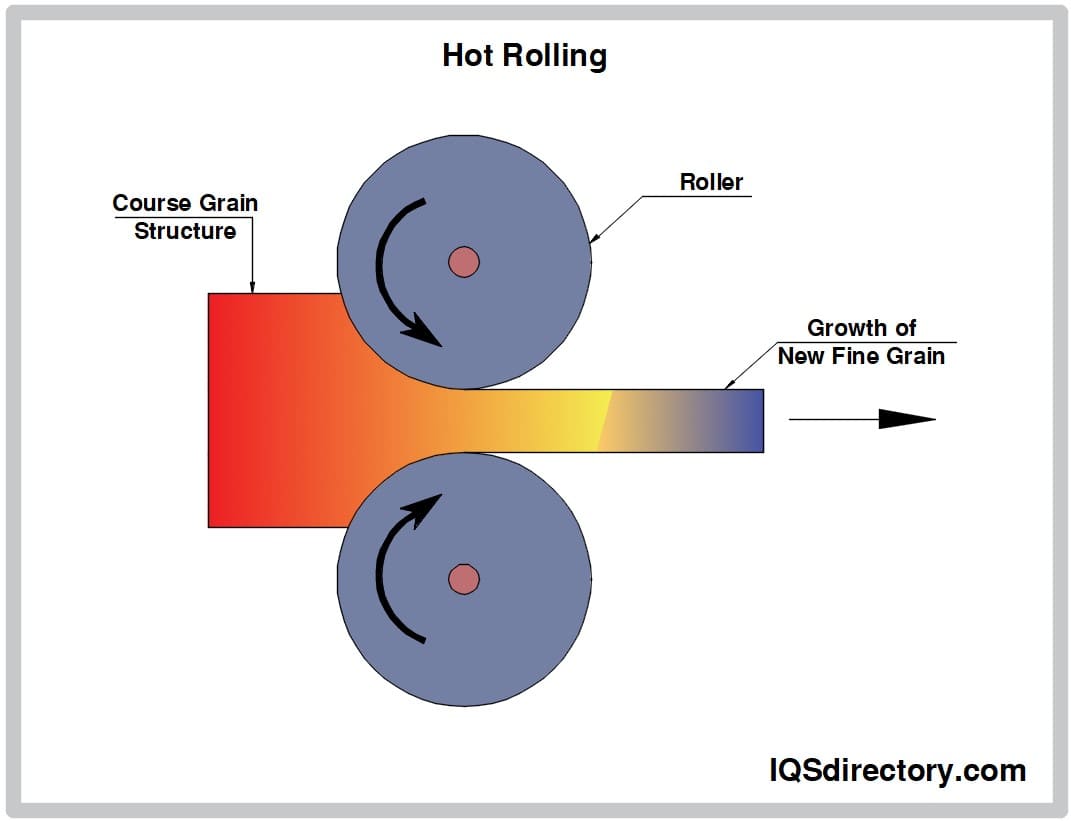 Hot rolling involves heating steel above its recrystallization point and pressing it to form various products with ease.
Hot rolling involves heating steel above its recrystallization point and pressing it to form various products with ease.
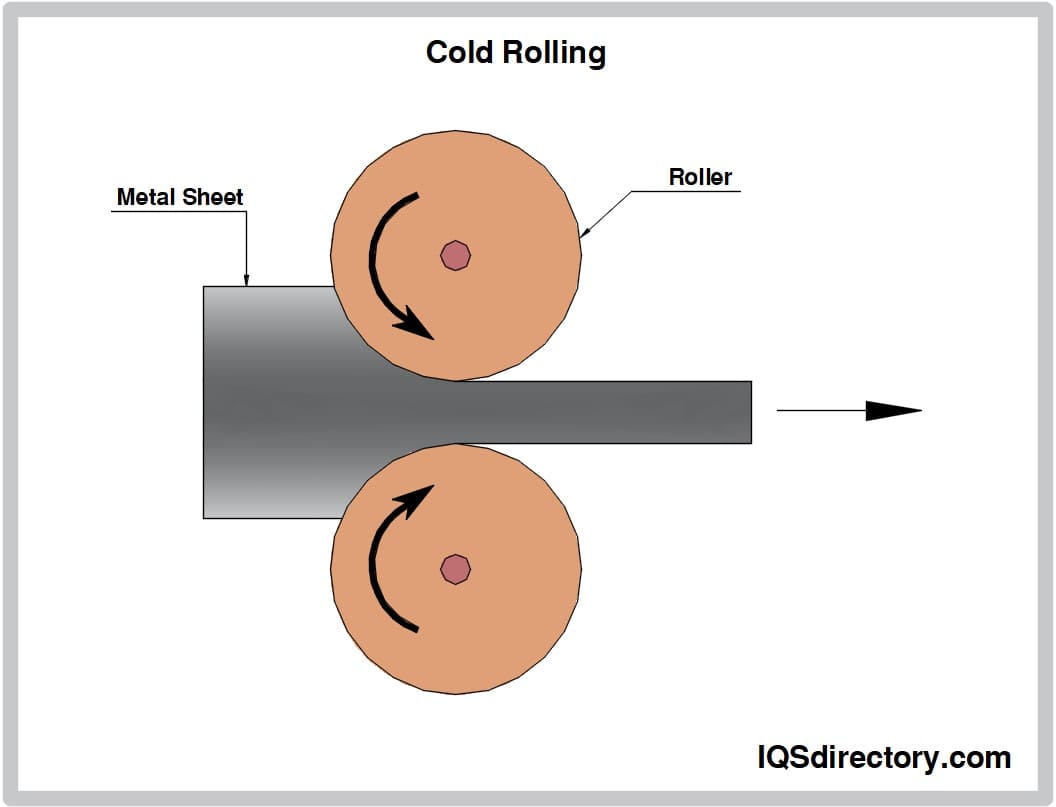 Cold rolling is the process of passing hot rolled steel strips through rollers to reduce thickness and improve surface finish.
Cold rolling is the process of passing hot rolled steel strips through rollers to reduce thickness and improve surface finish.
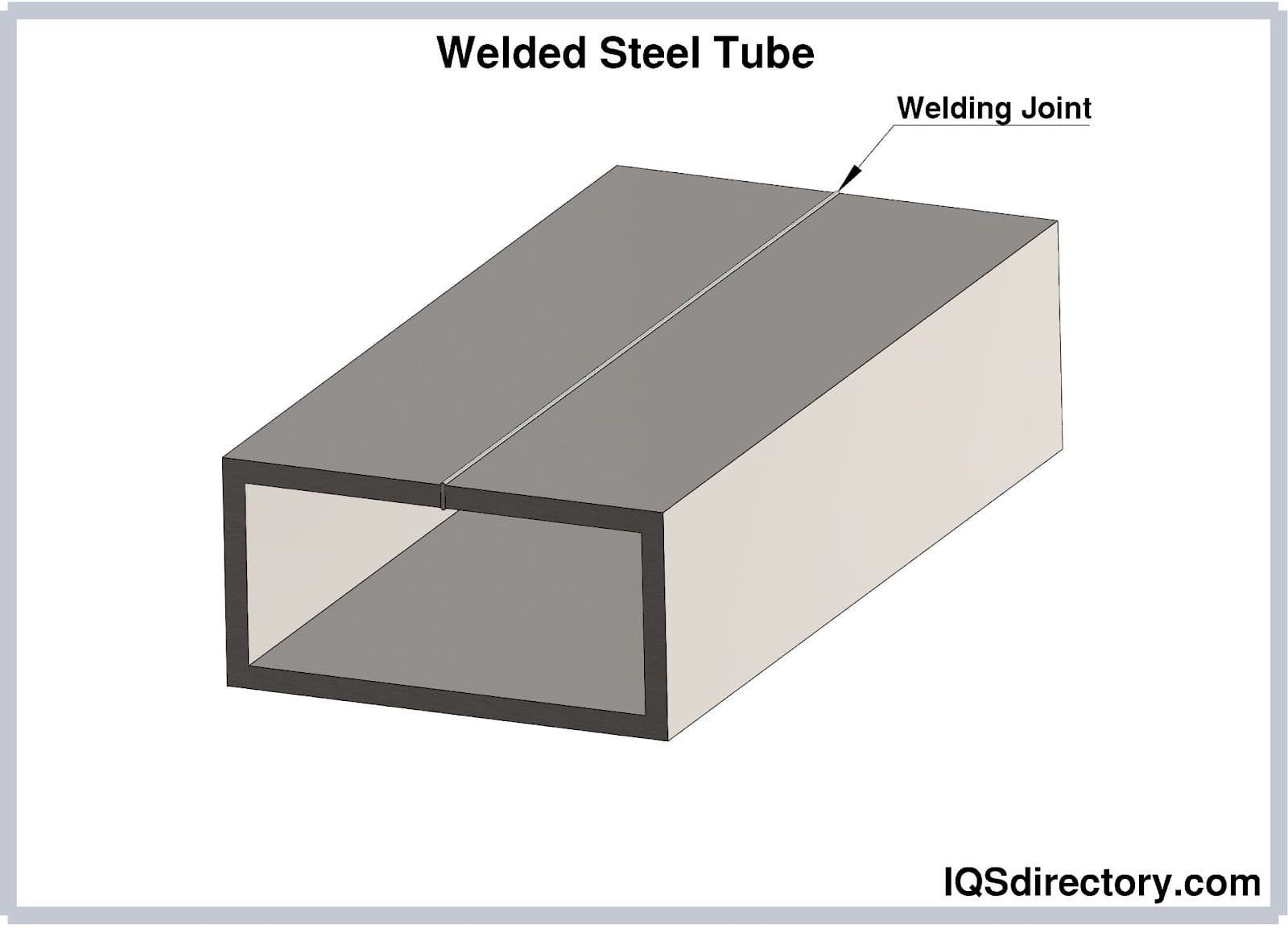 Welded tubes are created by shaping steel sheets or strips into tubes and longitudinally welding the seam.
Welded tubes are created by shaping steel sheets or strips into tubes and longitudinally welding the seam.
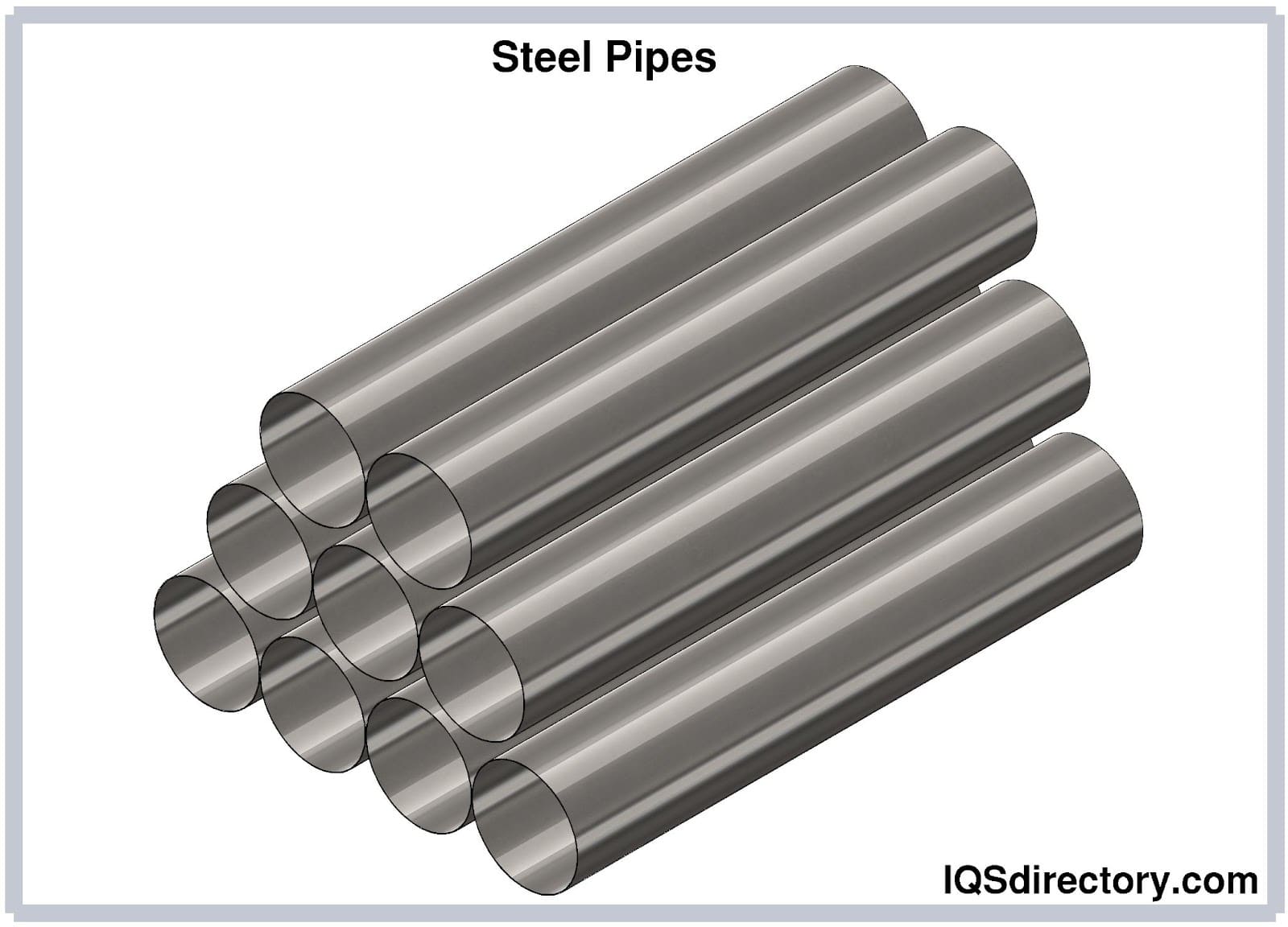 Seamless tubes are produced using an extrusion process rather than welding, resulting in a continuous, joint-free pipe.
Seamless tubes are produced using an extrusion process rather than welding, resulting in a continuous, joint-free pipe.
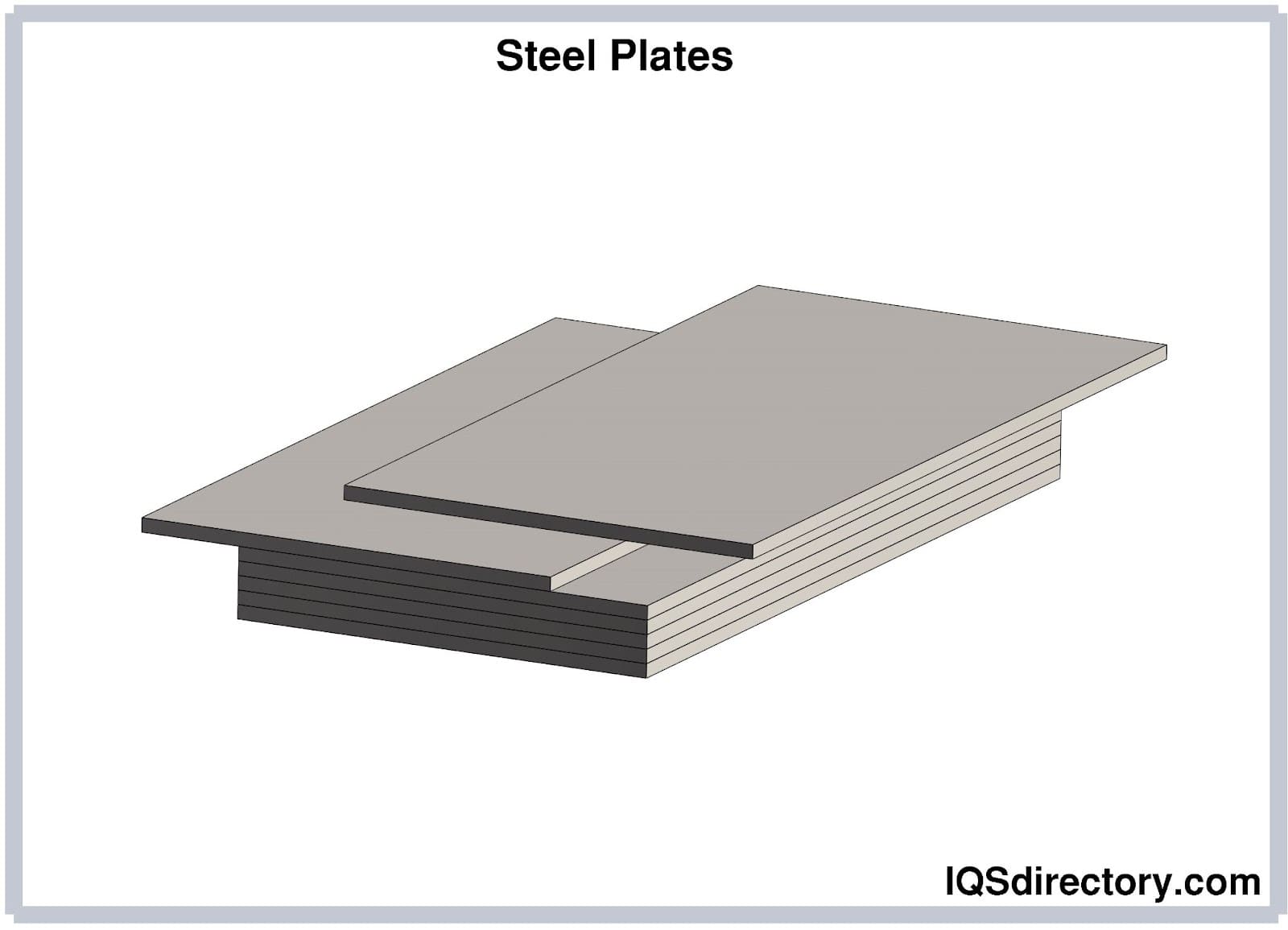 Steel plates are made through flat rolling and can be further processed to manufacture various new steel products.
Steel plates are made through flat rolling and can be further processed to manufacture various new steel products.
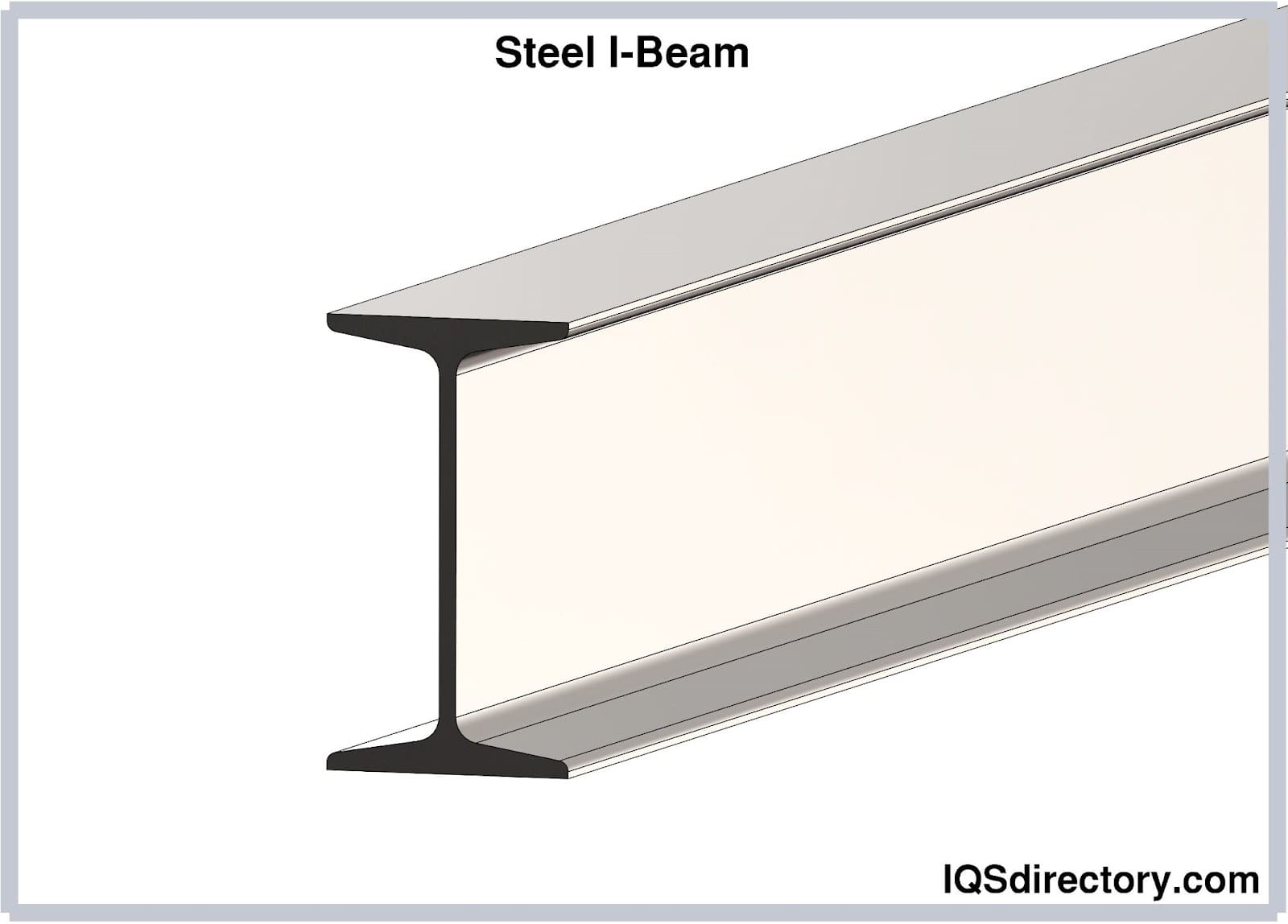 Steel beams provide structural support for large buildings and are engineered to withstand heavy loads and adverse weather.
Steel beams provide structural support for large buildings and are engineered to withstand heavy loads and adverse weather.
Products of Steel Service Centers
In addition to raw steel, steel service centers process a variety of essential steel products, such as:
- Plate Armor
- Flat-rolled steel plate, commonly used in construction and engineering, known for maintaining consistent thickness based on plate width.
- Steel Beams
- Essential in construction and engineering, steel beams are designed to bear heavy loads, making them critical for buildings and bridges.
- Steel Pipes
- Round steel pipes are widely used to transport fluids and provide structural reinforcement in bridges, buildings, and staircases. Their uniform thickness and strength withstand demanding applications.
- Steel Strips
- Thin, flat-rolled steel sheets primarily used in trim and finishing applications for the construction industry.
- Steel Plates
- Flat-rolled sheets available in stainless, hot rolled, or cold rolled varieties for versatile applications.
- Steel Tubing
- Steel tubing and conduits provide strong support for railings, ladders, poles, and exercise equipment, and protect electrical conductors and wiring.
- Structural Steel
- Hot-rolled low carbon steel with manganese, used in engineering and construction for making buildings, bridges, and transportation equipment. Steel beams are a common type of structural steel.
Standards and Specifications for Steel Service Centers
Founded in 1909, the Metals Service Center Institute (MSCI), formerly known as the American Steel Warehouse Association and Steel Service Center Institute, is a nonprofit trade association. MSCI represents 400 member companies operating from 1,500 locations in North America. These members inventory and distribute metals for industrial customers and perform initial processing. MSCI members annually purchase about 75 million tons of steel, aluminum, and other metals, serving 300,000 customers primarily in manufacturing and fabrication.
All steel products processed through steel service centers must be approved by the American Society for Testing and Materials (ASTM), a nonprofit organization dedicated to setting rigorous standards and ensuring the quality of steel products, processes, materials, and services.
The ASTM’s comprehensive book of standards, updated annually, covers steel pipes, tubes, fittings, plates, and steel for both machine structural and specialty uses. Recently, ASTM has also developed new standards for annealed steel conductors. By consolidating requirements for annealed copper clad steel wire and hard-drawn concentric-lay-stranded copper clad steel conductors, ASTM is promoting copper clad steel as an alternative to solid copper in steel service centers.
Things to Consider When Choosing a Steel Service Center
IQS Directory offers a comprehensive list of steel service center companies. Use our website to research and find steel service centers with user-friendly tools that help you source providers offering the steel processing services you need for your specific requirements.
Our request for quote forms make it simple to connect with top steel service centers. Explore company profiles, website links, locations, phone numbers, product videos, customer reviews, news articles, and other production details. As a leading manufacturer directory, we help you find the right suppliers for steel services, steel service tubing, or metal service centers.
Steel Service Center Terms
- Air Hardening
- Also known as "self-hardening," this refers to steel that becomes hardened simply by cooling in air, minimizing the risk of deformation.
- Bloom
- A semi-finished steel product with a rectangular cross-section over 8" wide, later processed in mills to make I beams, H beams, and sheet piling.
- Carburizing
- The process of adding carbon to a low-carbon steel surface to increase its strength. This is achieved by heating the steel in a carbon-rich environment, then hardening it through heating and quenching.
- Casting
- A steel forming method where molten material is shaped in a mold, mainly used for specialized parts rather than general steel production.
- Composite
- A material made by combining two or more distinct constituents, where each component retains its individual characteristics.
- Case
- The outer surface of steel that has a different composition due to exposure to elements like carbon or nitrogen at high temperatures.
- Case Hardening
- A treatment that produces a steel surface with greater hardness than the internal regions of the steel.
- Cold Working
- A metal forming process carried out at temperatures low enough to prevent recrystallization, preserving the metal’s structure during deformation.
- Core
- The innermost section of a steel part that remains unchanged during case hardening.
- Decarburization
- The loss of carbon from the steel’s surface layer due to chemical exposure, which decreases hardness and strength.
- Ductility
- The capacity of steel to be deformed without breaking, a key advantage of alloy steel.
- Edge Rolling
- The process of rolling steel edges to create smooth, functional surfaces and prevent damage.
- Hot Rolling
- A steel manufacturing technique involving heating and shaping steel to required forms through pressing and rolling.
- I-Beams
- Steel beams shaped like a capital letter "I," commonly used in construction for structural support.
- Normalizing
- A heat treatment that refines grain size and relieves internal stresses by heating steel to 800°C–900°C (1472°F–1652°F) and air cooling it.
- Quenching
- The rapid cooling of metal from a high temperature, usually to harden it.
- Secondary Steel
- Steel that is rejected by an initial buyer due to defects and must be resold by the manufacturer to another customer.
- Steamless Tubing
- Used to transport fluids or protect wires, seamless tubing is produced by extrusion or rotary piercing without welded seams. It is made by drawing a solid billet over a piercing rod, then pulling it through a die for precise sizing.
- Specialty Steel
- Steels that include stainless, tool, alloy, and silicon electrical steels, as opposed to regular carbon steel.
- Tensile Strength
- The maximum stress a material like steel can withstand when being stretched or pulled before breaking.
- Yield Stress
- The stress level at which a material begins to deform permanently, commonly represented as sy.